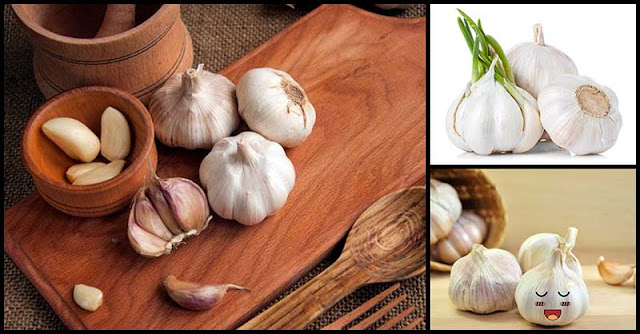Can garlic help prevent asthma attacks? Evidence suggests that compounds naturally present in garlic can indeed help treat asthma as well as reduce and cure symptoms associated with other respiratory ailments. One nutrient that plays a key role in the ability of garlic to fight asthma is vitamin C. Ounce for ounce, fresh garlic provides more than twice as much vitamin C like tomatoes. Vitamin C helps neutralize free radicals, unstable molecules that cause contraction of airway smooth muscles in asthma sufferers.
Furthermore, research suggests that vitamin C rich foods, such as raw garlic, can promote histamine breakdown and reduce histamine release in the body. Histamine, a natural chemical generated by the body, is involved in many allergic reactions and is known to promote inflammation in asthma sufferers.
In addition to its effects on histamine release and breakdown, garlic can boost the ability of the body to create prostacyclins. Prostacyclins are lipid molecules that help keep the air passages of the lungs open and thus promote easy breathing in asthmatic individuals.
Garlic Milk – An Age-Old Remedy for Asthma
The easiest way to use garlic as a natural, herbal asthma remedy is to use it as a flavor enhancer in savory dishes. If you’re into traditional folk medicine, you may also want to try making warm garlic milk, an age-old natural remedy for asthma.
To make asthma fighting garlic milk, simply peel and crush eight raw garlic cloves, and place them in a small heat resistant pot. Add 1/4 cup of cold, preferably organic milk, and bring the mixture to a boil, stirring constantly with a wooden spatula. Stirring helps prevent solids from sticking to the bottom of the pan. Then, strain the garlic from the hot milk and let the liquid cool down. Drink your asthma treating garlic milk when it’s still warm but not hot.
Possible Side Effects of Garlic
For most of us, eating garlic or drinking garlic milk in moderation holds no serious side effects. However, depending on the amount of garlic you consume as part of your anti-asthma diet, you may experience some mild side effects such as heartburn (especially during pregnancy), increased perspiration and body odor, stomach problems such as diarrhea, lightheadedness, or an unpleasant burning sensation in the mouth or stomach. The topical application of garlic can also cause skin irritation and rash in some people.
Before you add garlic to your anti-asthma diet, you should talk to your doctor if you take medications — many drugs are known to interact with compounds present in garlic. These medications include but are not limited to anticoagulants, antiplatelet, and anti-viral drugs. Also, some contraceptive drugs may lose their power when garlic is consumed in large quantities.
Important Notice: This article was originally published at www.healwithfood.org where all credits are due.









